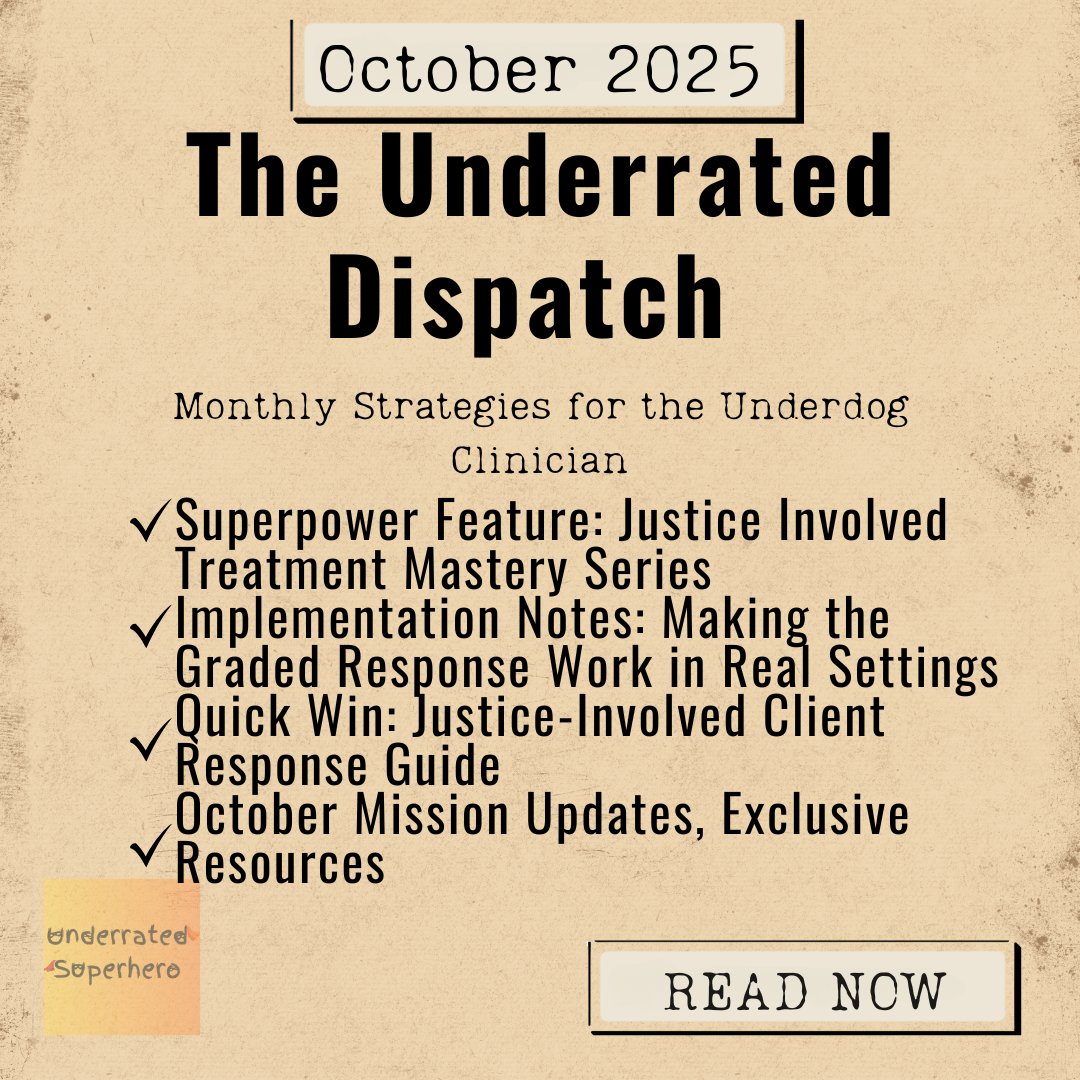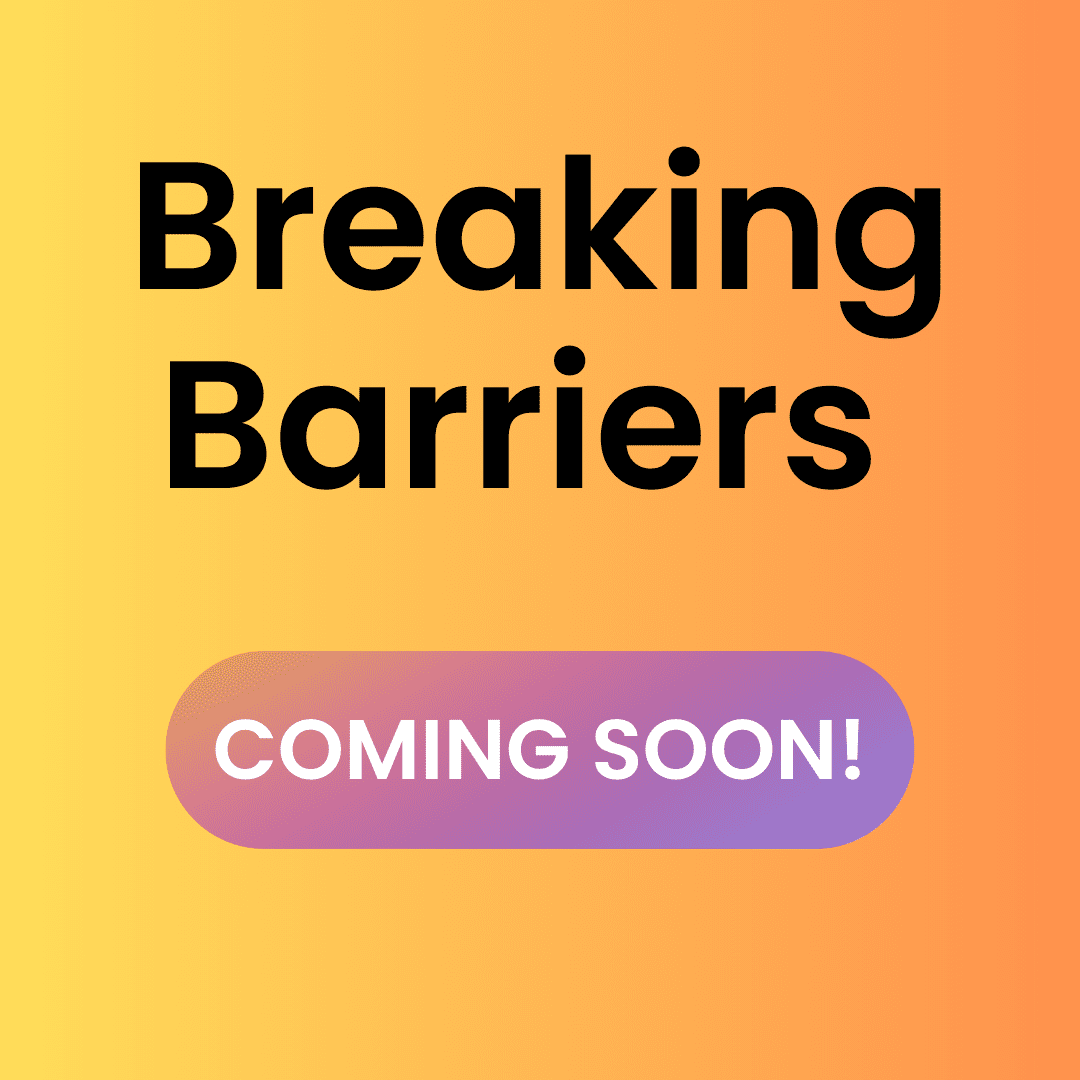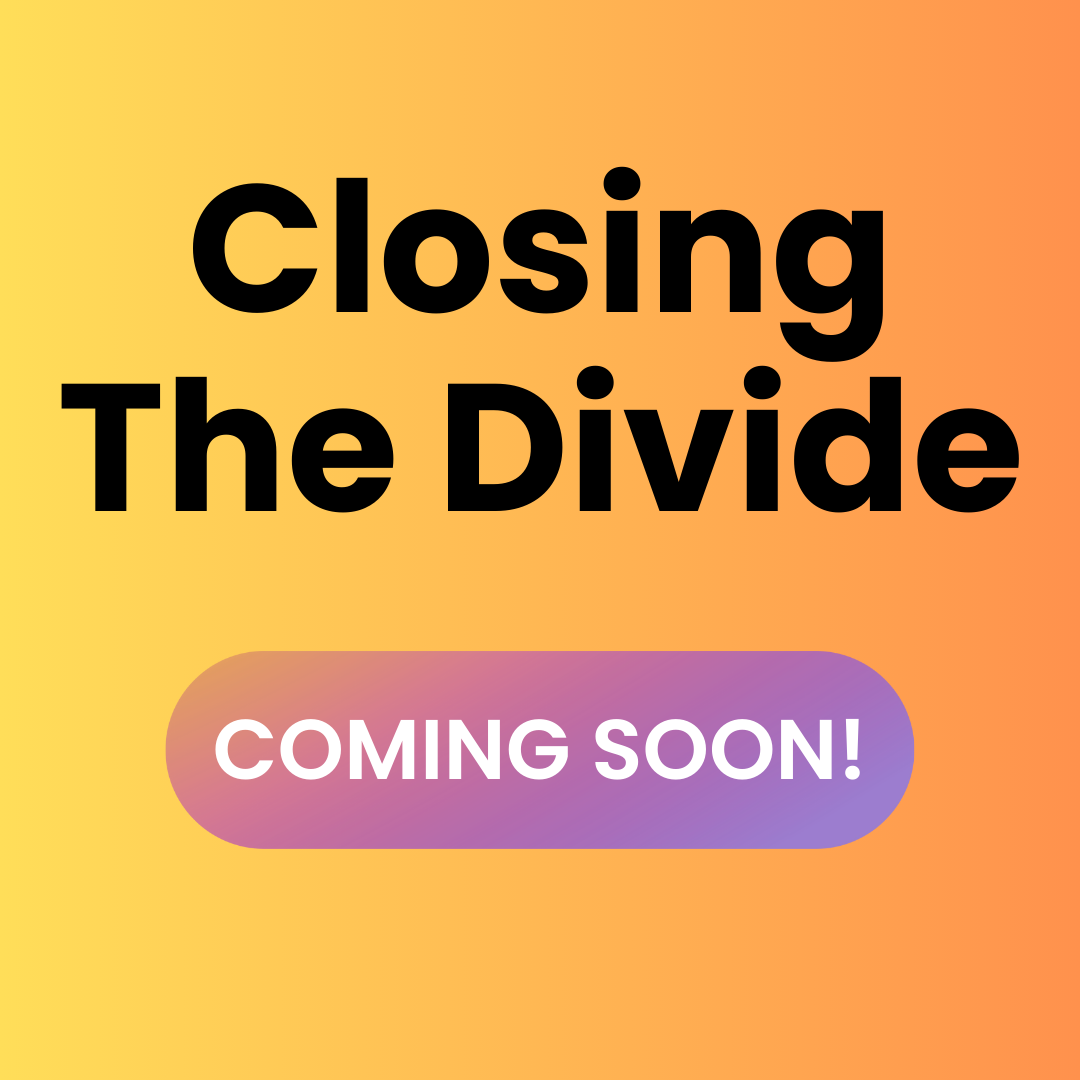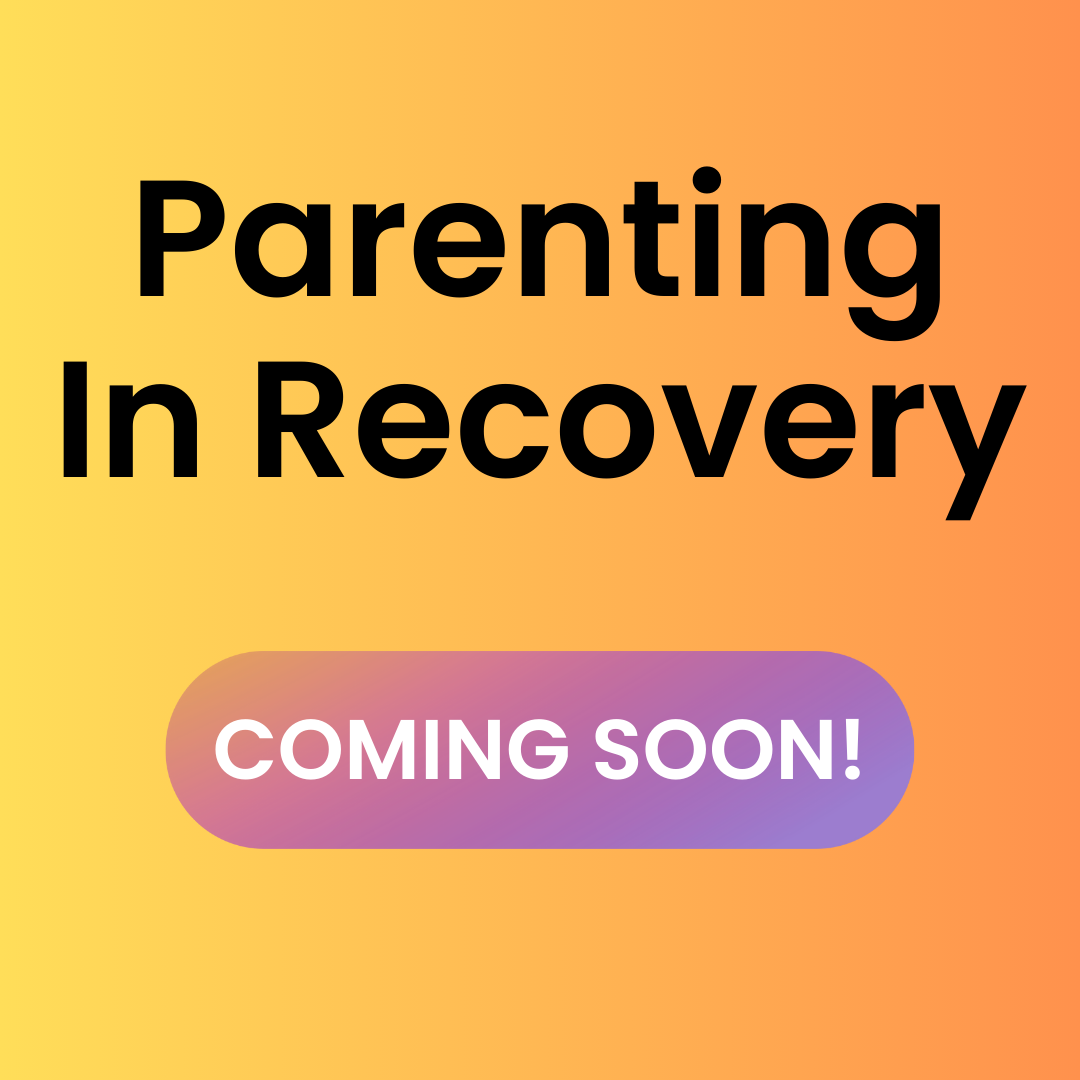Monthly Strategies for the Underdog Clinician
Featured Highlight: From Compliance to Care: Why Justice-Involved Clients Treatment Need a Different Approach
When mandated doesn’t have to mean meaningless in Justice-Involved Clients Treatment
Sarah sits across from you for the first time, arms crossed, eyes fixed on the floor. Court-ordered. Six months of treatment or face jail time. She’s twenty minutes late, and when you ask how her week went, she shrugs and mutters “fine.” Your supervisor’s voice echoes in your head: “These clients need firm boundaries. Don’t let them manipulate you.”
But what if everything we think we know about “non-compliant” justice-involved clients treatment is wrong?
This shift in thinking aligns with emerging research and best practices. In fact, SAMHSA’s comprehensive behavioral health guidelines for justice-involved individuals specifically acknowledge that traditional treatment approaches often fail this population precisely because they don’t account for the complex trauma and systemic pressures these clients navigate daily.
September Mission Updates
- Featured Board (10/1) Justice Involved Population
- New Clinician Survival Kit Series First Release 10/5
- Mastery Series (10/12) 1st Article Release with Materials
- Monthly Content Drop (10/15)
- Our initial Founding Member phase is complete. Current pricing reflects our expanded resource library.
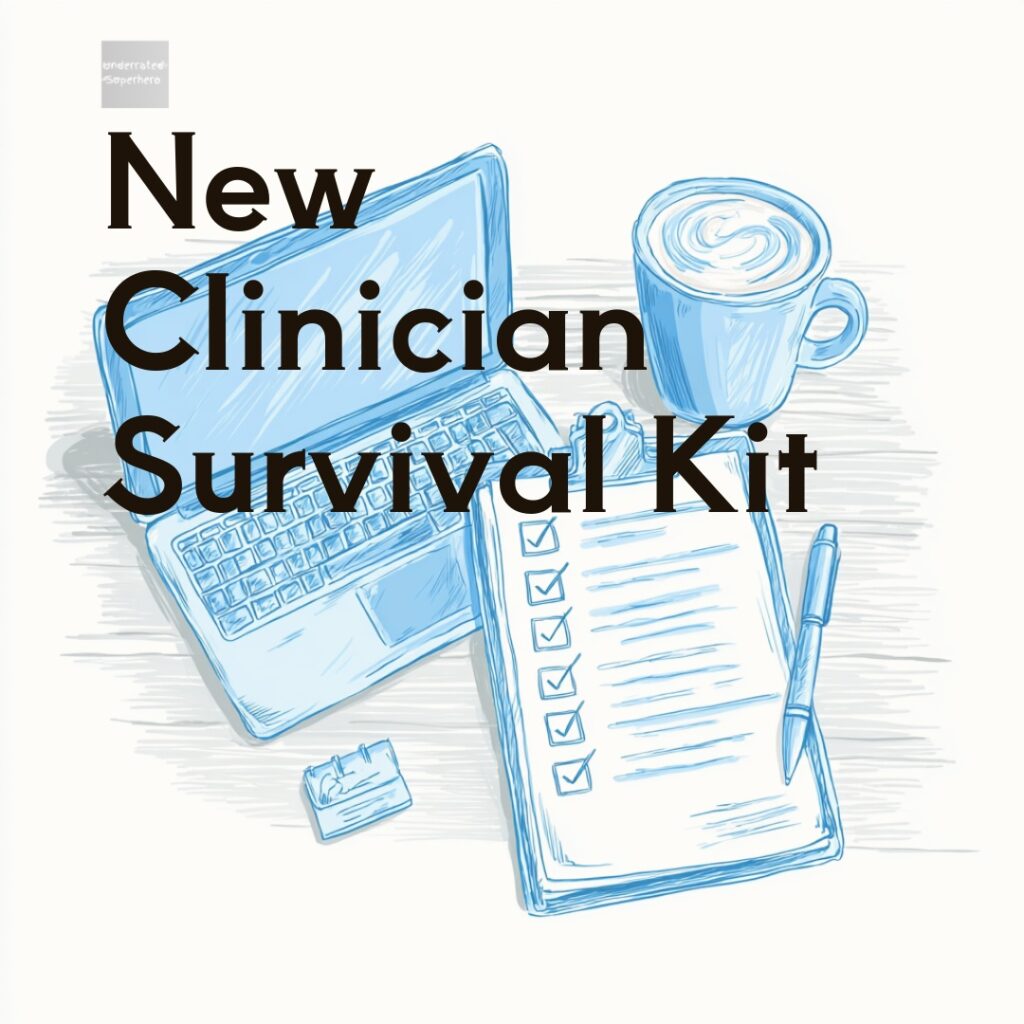
🆕 New Launch: The New Clinician Survival Kit Series
We all have those moments. “I hate group.” “I can’t do this.” “My client definitely hates me.” Starting this month, I’m launching a weekly blog series tackling those raw thoughts every clinician has but rarely talks about. Plus, introducing monthly New Clinician Survival Kits – a mix of digital tools and physical comfort items to help you through the tough moments.
Follow along on Pinterest for daily inspiration and resources for new clinicians: Pinterest
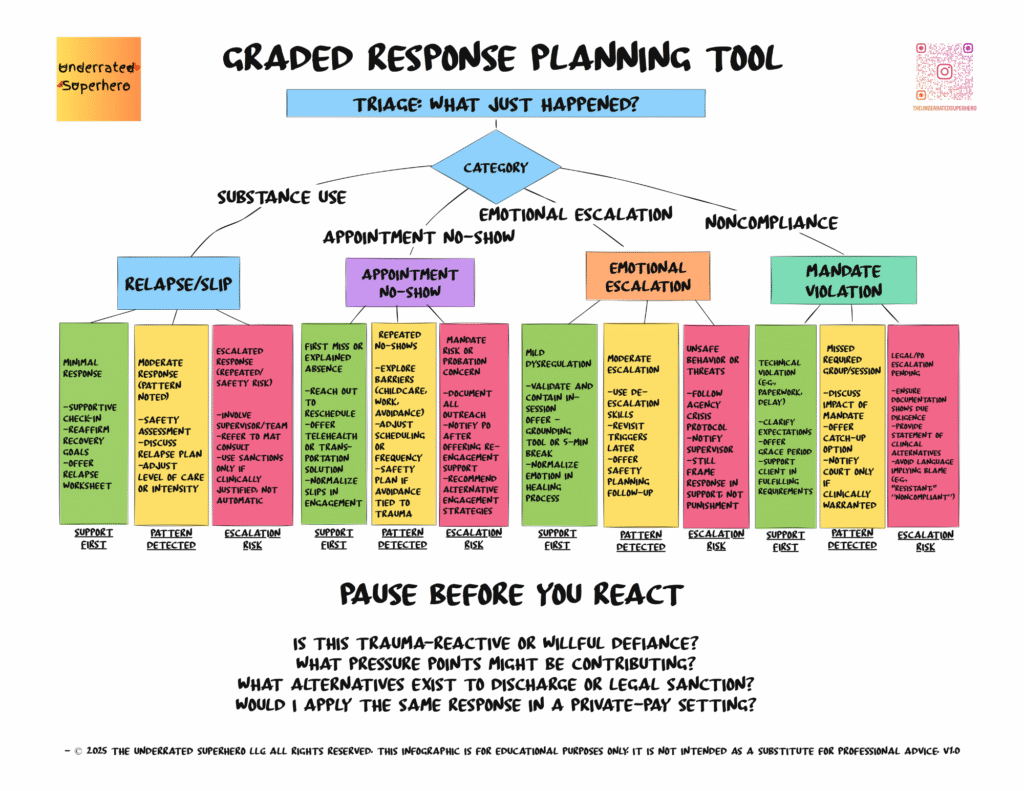
Justice-Involved Clients Treatment Implementation Notes
Making the Graded Response Work in Real Settings
Practical tips for using this month’s Quick Win Tool
Common Pitfalls to Avoid
- Mistaking Shutdown for Defiance
- Rushing the Assessment
- Forgetting Your Agency’s Culture
Mistaking Shutdown for Defiance When justice-involved clients go quiet or seem “checked out,” recognize that shutdown is frequently a trauma response. The National Child Traumatic Stress Network emphasizes that trauma-informed approaches require understanding these protective mechanisms rather than pushing against them.
Rushing the Assessment Similarly, the urge to quickly categorize behavior can lead to misreading situations. Instead, take time to observe before choosing your response pathway.
Forgetting Your Agency’s Culture Meanwhile, if your workplace emphasizes strict consequences, gradually introduce graded responses. Subsequently, document positive outcomes to build support.
- In Drug Court Programs
- Within Residential Treatment
- During Outpatient Counseling
When questioned about “lenient” responses: “I’m using evidenced-based engagement strategies that research shows improve retention and outcomes with justice-involved populations.”
Documenting decisions: Consequently, focus on the clinical rationale: “Assessed client presentation as trauma-activated rather than oppositional. Adjusted approach to support nervous system regulation, which ultimately resulted in increased engagement and willingness to problem-solve barriers.”
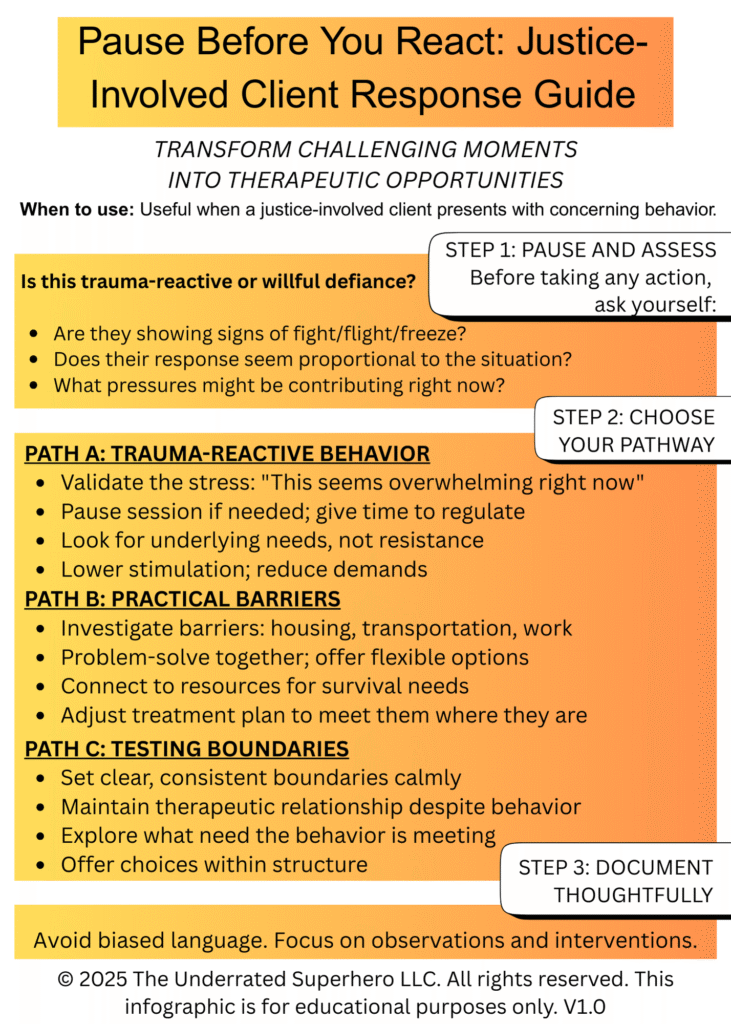
Quick Win Tool of the Month: Justice-Involved Client Treatment Response Guide
Pause before reacting, when justice-involved clients show challenging behavior. This simple decision tree helps you distinguish between trauma responses, practical barriers, and boundary testing—then choose therapeutic responses that build connection instead of escalating conflict. Transform “non-compliance” moments into opportunities for deeper engagement.
Underrated Tactic: 3-Question Reframe
Turn defensiveness into dialogue.
Moreover, pair this with the Justice-Involved Client Response Guide to gain a more thorough understanding of your justice-involved clients.
- “What would someone who cares about you want you to know about this situation?”
- “If you could give advice to someone in your exact position, what would you tell them?”
- “Would you tell me what would need to be different for this to feel less overwhelming?”
Coming Soon: Justice-Involved Clients Treatment Mastery Series: Launch Announcement
Get ahead of the curve with specialized training that fills the gaps
What’s Coming This Month
Beginning October 12th, our Justice-Involved Treatment Mastery Series launches with Month 1: “Beyond Court Compliance: Harm Reduction with Mandated Clients.” Specifically, this comprehensive blog series will dive deep into the practical skills that most addiction training programs skip entirely.
What Makes This Different
Unlike generic “difficult client” training, this series specifically addresses the unique intersection of addiction, trauma, and justice involvement. As a result, you’ll learn:
- How to assess trauma responses vs. oppositional behavior
- Specific harm reduction strategies that work within legal mandates
- Documentation techniques that support clients while protecting your license
- Communication scripts for courts, probation officers, and skeptical supervisors
October Focus: Harm Reduction in Justice Settings
Importantly, month 1 tackles the biggest misconception in our field: that mandated clients can’t benefit from harm reduction approaches. Furthermore, National Harm Reduction Coalition’s principles demonstrate how harm reduction meets people where they are – which is a perfect fit for justice-involved populations who need connection, not coercion. Therefore, we’ll show you how to:
- Implement harm reduction within compliance requirements
- Reframe “setbacks” as learning opportunities
- Build therapeutic relationships despite external pressures
- Navigate ethical dilemmas unique to court-ordered treatment
Additionally track your progress: Each month includes implementation tracking sheets to help you monitor your growing expertise with this specialized population.
Remember, you don’t have to reinvent the wheel for every client. Explore The Underrated Superhero Resource Hub for ready-to-use tools, templates, and strategies that save you prep time and keep you focused on care.
– The Underrated Superhero
Prefer to download and read later?

